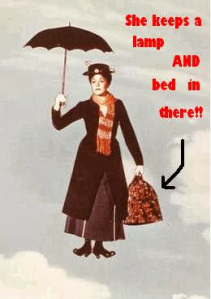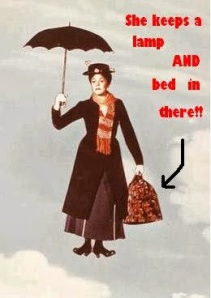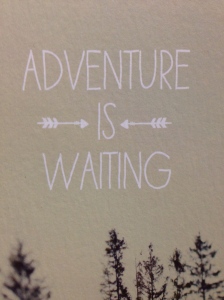
13 Dec Pt 11. turning auto-pilot off.
In 2009, around the time I was crashing out, I read a book which had a profound impact on me. It’s called “The Art of Possibility: Transforming Professional and Personal Life”.
Sounds awful doesn’t it.
When Matt first recommended it I rolled my eyes at him –
(An aside: I married a man who’s idea of a great night out is to write a 5 year plan for our lives (no joke).
For many of the years dominated by small people he would often attempt to ask me strategic questions: What were my priorities? What did i want from the next 6 months/ 3 years? How was I going to achieve that?
As, generally what I wanted was to be left alone and to sleep, I didn’t really enter into these discussions. I know this frustrated him no end. After a while he asked me less.)
But, I did read the book (the good girl in me probably). Turns out, it’s really good, and redemptive. Reading this book helped Matt and I develop a new framework, and gave us a vocabulary through which we could talk about where we were at, and what was going on… Which became very useful.
‘The Art of Possibility’ describes the world we live in:
‘We propose to call our familiar everyday world “the world of measurement” in order to highlight the central position held by assessments, scales, grades and comparisons.’
Then it reveals the foundations of this way of living are based on falsehood, and assumptions that we can choose to abandon. This is not easily done as we are programmed from such a young to understand our value by measuring ourselves against others using systems and structures that institutions and organisations have used to categorise our worth and position. (Exam results, job position, salary, size of house, size of waist etc.)
Instead of looking at your life through this prism, this book invites you to think about a universe of possibility, where:
‘unimpeded on a daily basis by the general concern for survival, free from the generalised assumption of scarcity, a person stands in the great space of possibility in a posture of openness, with an unfettered imagination for what can be.’
When i initially read this I was slightly overwhelmed. It all sounded great, but not something I could figure out how to do. How do you abandon ideas about success and comparison that have been so integral to your way of understanding the world and your place in it?
Well, in the words of Julie Andrews… You start at the very beginning
——–
I have aways found it helpful to use pictures and stories to make sense of what I am experiencing, to enable me to articulate what is going on. In 2009/2010 as I began to process where I was at and why my life was not working out as I had thought it would, I started to see myself as someone who had been carrying a heavy bag.
In this bag was everything that had got to to this point. Skills, experiences, my expectations, other peoples expectations, events beyond my control, events within my control, happy memories, times of sorrow, things I had learnt, responsibilities I’d carried, ideas I had inherited, and ideas that had been confirmed by circumstances. The bag contained a heady mix of the profound and the ridiculous, the joyful and the tragic, the stuff I needed to carry and the stuff that had sneaked in when I wasn’t looking.
After the crash, and then a period of rest, (where I went deep and quiet), it became imperative to get everything out of the bag, to shake out the Mary Poppins’ holdall and see what was in it. To analyse the collection I had amassed over 30 years.
As I emptied the bag out, gradually i was able to begin having the discussions Matt had wanted to have for a long time. As I (and latterly we) have embarked on this process of sorting through the load, we have realised there is a lot of stuff there that we didn’t need to carry. And as the load lightened, we began to attempt to step away from the world of measurement. (This is quite a tricky extraction process – we have gained some ground freedom, but we’re also still working on it.) It was only then that I could actually start to make some decisions, firstly about what I wanted, and then about what we wanted; for our family, for the future, what our priorities were and where our passions lay.
Although at times this felt this still feels overwhelming, it is good.
I want to live my life. I don’t want life to happen to me, I want to play an active part in shaping it.
I don’t want to let my assumptions about what people want from me to dictate how I live. Life is too short.
I’m so glad I woke up. That I stepped off the treadmill, and realised that ‘its all invented anyway’* .We can choose to opt out of climbing the ‘ladders of success’ that are so often seen as the only way to find fulfilment. I have started seeing that these ladders don’t actually take you anywhere, you just keep on climbing, getting more tired and increasingly disillusioned as, the things that you thought would bring satisfaction, don’t.
It is a scary thing to do.
To be able to figure out where you really want to go, you have to step back – to get far enough away from your life to be able to gain some level of subjectivity about it. To look at it from a different perspective. For me, I needed to acknowledge my life was a total mess not working before I could begin to start anew.
This post is not an anti-ambition rant. I have dreams I want to see happen, and grand schemes I want to undertake and adventures I want to go on. But I am now doing these things because I want to and because they fit with my priorities, my passions and my family. I don’t want to look back and realise that I pushed myself really hard just because i felt it was expected of me, or because that was what ‘seemed like the next thing to do’. I refuse to live on auto-pilot anymore.
I’m definitely still figuring it out. And I’m pretty sure I wont ever have it all figured out, but I am engaged in the process. Discovering my priorities, acknowledging and investing in my passions, and learning the art of possibility.
Who’s with me?
*This is another phrase from “The Art of Possibility” by Rosamund Stone Zander (psychologist) and Benjamin Zander (professor and Conductor of the Boston Philharmonic Orchestra. You can buy this book here. I have very briefly skirted over one of the ideas in this book – they explain it far better. And the rest of the book is great too. I especially enjoyed Rule Number 6.



1 Comment